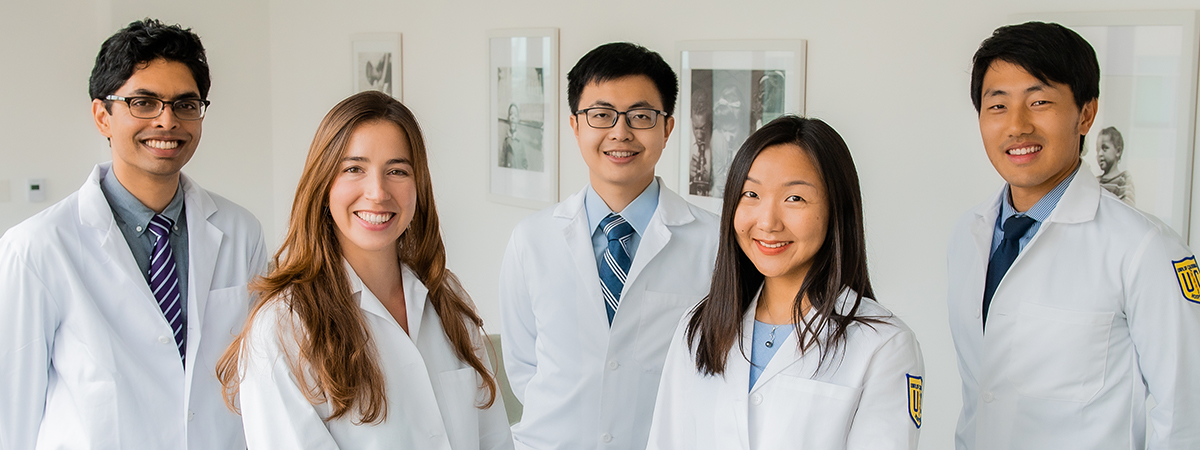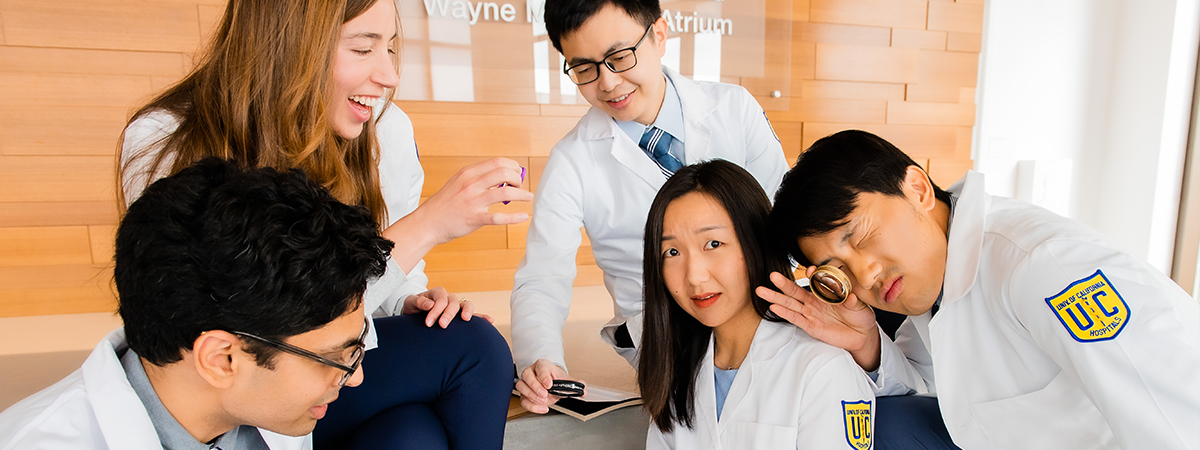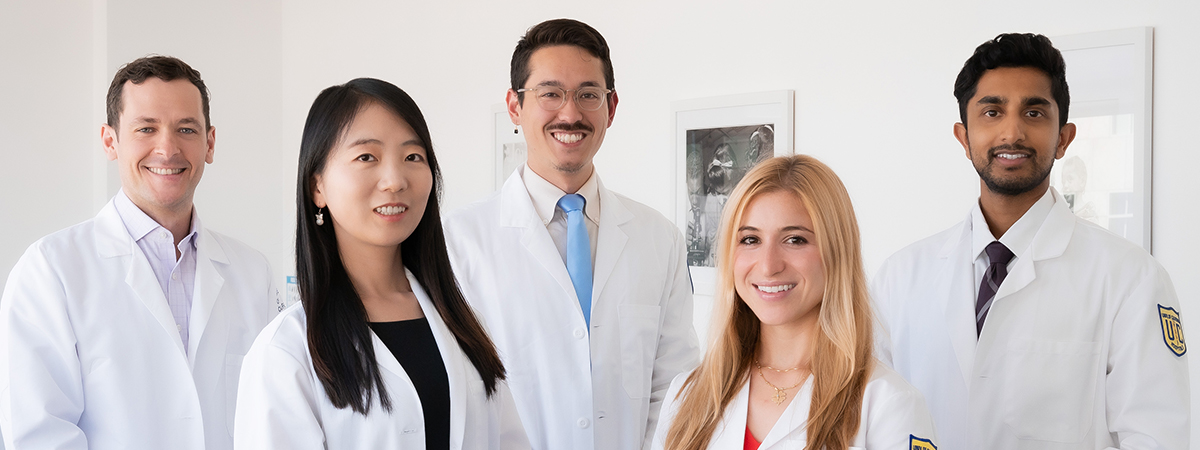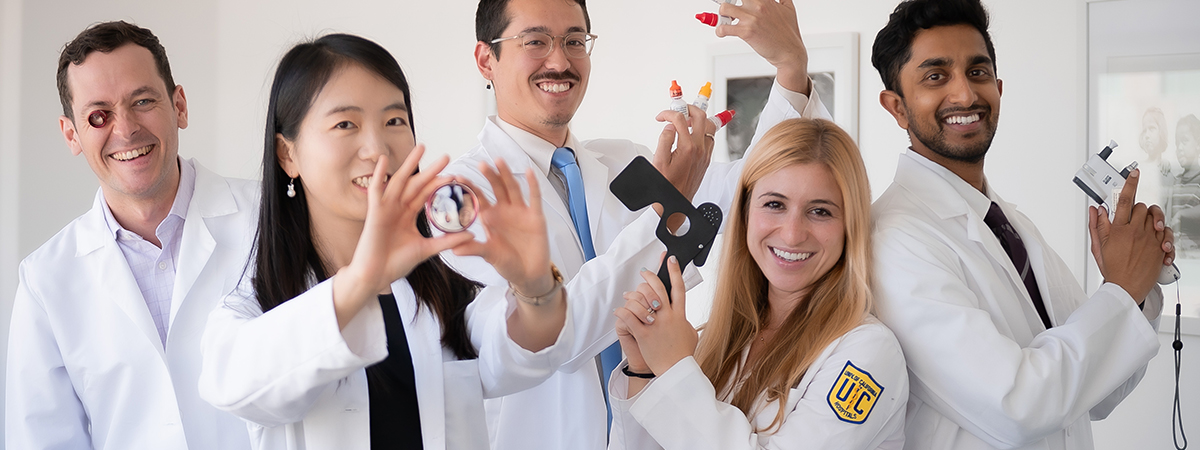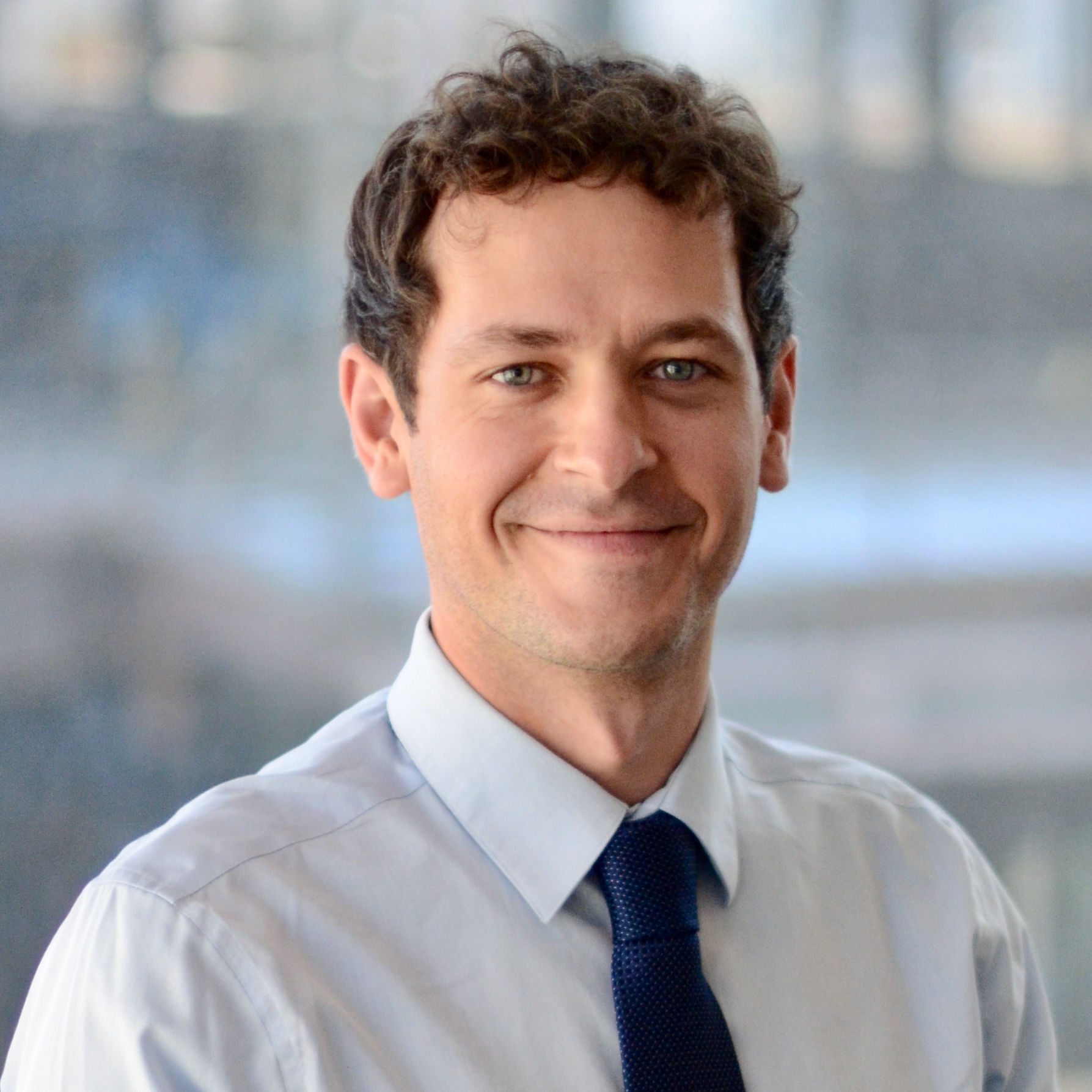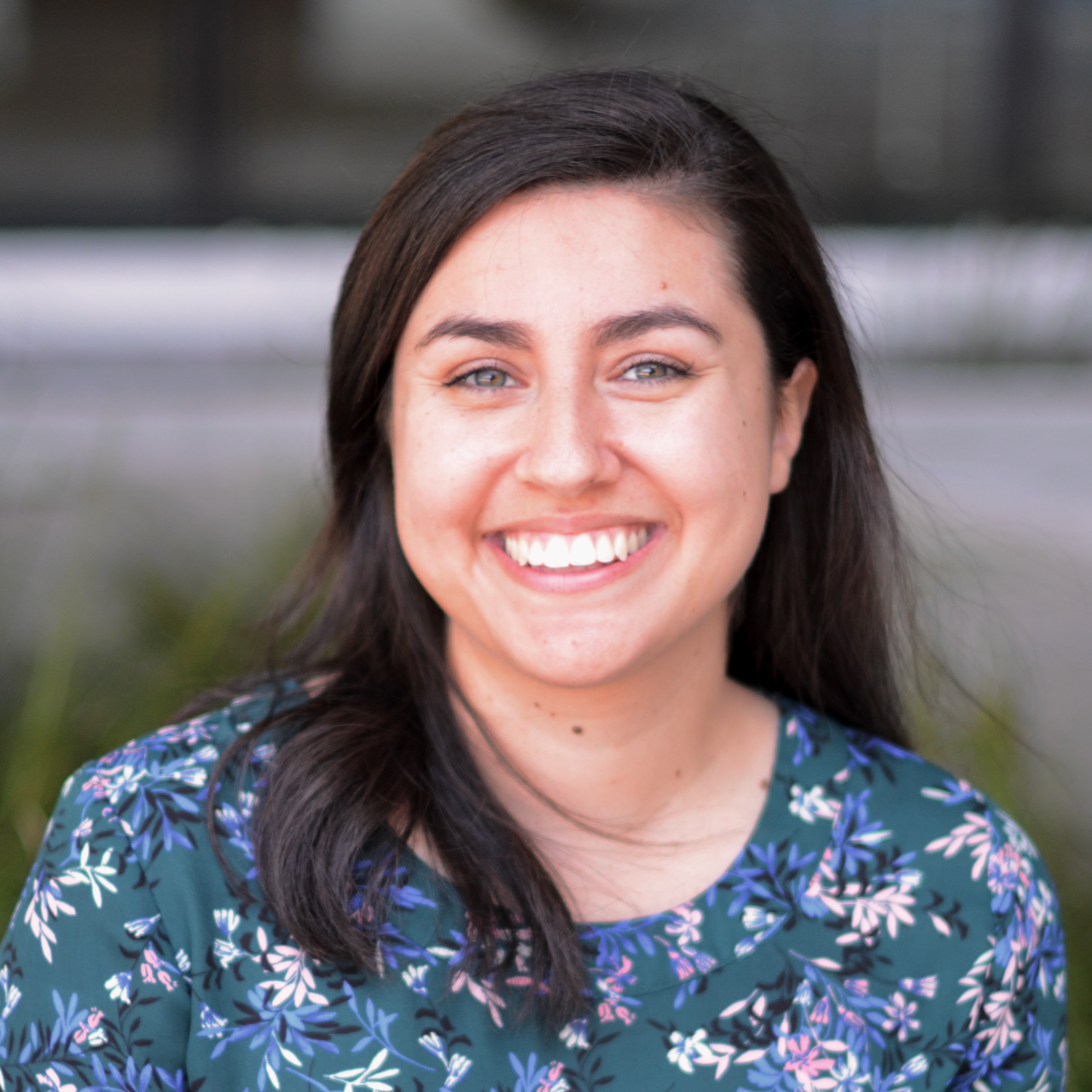Residency Program
Curriculum Overview
Learning – in the classroom, clinic, operating room, or wetlab microsurgical suite – is a foundational part of the Ophthalmology residency at UCSF. Our faculty are committed to teaching in both formal and informal settings. Below, you will find details about some of the structured learning opportunities and curricula built into our program.
” What really drew me to the ophthalmology program at UCSF was its focus on resident education. Clinical and surgical exposure starts intern year, so you are prepared to hit the ground running by the time you reach PGY2. Even as a new intern, attendings who are leaders in the field would make time to staff patients with me and review imaging, examination findings, and clinical decision making. The effort the department puts into the curriculum and resident education shines through when I look at the residents ahead of me.” |
Our residency program has partnered with the UCSF Department of Surgery to offer a joint internship tailored to the needs of our residents. Over the past 8 years, we have used feedback from our trainees to continuously improve our internship. Currently, this internship consists of the following rotations:
- 6 months General Surgery (ENT, OMFS, Plastics, Neurosurgery, Trauma, Cardiac)
- Dermatology
- Neuroradiology
- 3 months of Ophthalmology
- 1 month of elective (done with research mentor)
Our interns participate in ophthalmology didactic sessions during their non-surgery rotations, and also have a dedicated clinical skills and surgical wetlab curriculum that spans 9 months and includes the following sessions:
- Microscope Basics and Introduction to the Eye OR
- Laser lab
- Corneal laceration repair
- Eyelid laceration repair
- Scleral Tunnel creation
- Strabismus basics
- Intravitreal injection
- Chalazion tutorial
- Introduction to manual small incision cataract surgery
- Introduction to phacoemulsification
- Clinical Skills sessions
- Refraction, retinoscopy, external examination and motility
- Applanation, Slit lamp exam
- 90 and 20 diopter biomicroscopy
- Scleral depression, Gonioscopy, Punctal plug insertion
- Imaging interpretation
The first year of residency at UCSF begins with our unique five-week Summer Session Boot Camp, which is designed to introduce the first-year residents to necessary basic education and skills in ophthalmology through a step-by-step clinical and didactic experience. Residents spend these weeks alternating between core didactic coursework (fundamentals of ophthalmology or management of ocular emergencies), mentored research workshops, or specially-structured hands-on clinical experiences. During this hands-on time, they will either see patients and practice all the components of a comprehensive eye exam, or join our faculty mentors in one of several structured wet-lab curricular sessions.
By the end of the summer session, residents feel fully confident in performing a comprehensive ophthalmic evaluation and are equipped for high level learning in their subsequent clinical experiences throughout residency. They are also ready to perform their first mentored intraocular surgeries.
Every Thursday of the year is reserved for faculty-led didactics, conferences, and seminars. A typical Thursday schedule includes:
7:30 – 8:30 AM: Morbidity, Mortality, and Microsurgery conference
8:30 – 9:15 AM: Patient case presentations and discussions
9:15 – 10:00 AM: Grand Rounds lecture given by a named lecturer or visiting professor
10:15 – 11:15 AM: Early Career Mentoring Sessions, Journal Club
11:15- 3:00 PM: Subspecialty lectures, Imaging Conferences, and BCSC Didactics
Weekly conferences also occur for the Francis I. Proctor Foundation, focusing on inflammatory and infectious diseases of the eye.
Additionally, the week before the Ophthalmic Knowledge Assessment Program (OKAP) exam, residents are excused from clinical responsibilities to attend a week-long review course taught by UCSF faculty.
“I chose UCSF because it is a truly resident focused program. The curriculum is optimized for a great resident experience, and our residency leadership is very open and responsive to resident feedback. There is the right mixture of both guided learning and autonomy. Every attending that we work with is dedicated to resident teaching, and I appreciate the commitment that the department has to creating well rounded ophthalmologists. As a whole, the culture here is so welcoming and I am so grateful to be a part of UCSF Ophthalmology!” |
Among academic institutions, UCSF is particularly well known for the breadth and quality of the wet lab curriculum. Residents are given protected time to attend the following annual wet lab courses, which feature high fidelity simulations with exposure to multiple phacoemulsification and vitrectomy machine platforms, the ability to achieve certification on the Wavelight platform for laser refractive surgery, and individualized mentorship by world class faculty. Courses take place in a beautiful six-station wet lab integrated in the Wayne and Gladys Valley Center for Vision, which residents can access easily after hours to supplement their learning.
- July: October: Oculoplastic and Reconstructive Surgery wetlab
- July-Aug: Beginning Ophthalmic Microsurgery wetlab (5 half day sessions)
- August: Laser Refractive Surgery course
- September: Orbital Anatomy wetlab course with cadaver dissection
- October: Oculoplastic and Reconstructive Surgery wetlab
- October-June: Intern Wetlab Sessions (1-2 three-hour sessions per month)
- December: UCSF Continuing Medical Education December Course
- April: UCSF Department of Ophthalmology Resident Research Day
- May: UCSF Department of Ophthalmology Research Day
- June: Intermediate Ophthalmic Microsurgery wetlab (5 half day sessions)
- June: Advanced Ophthalmic Microsurgery wetlab (5 half day sessions)

